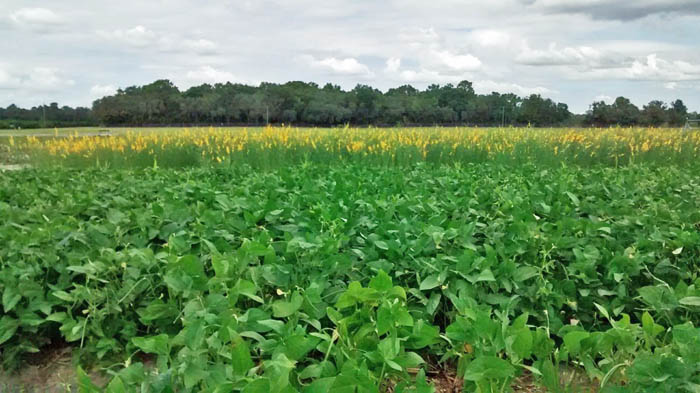Summer Cover Cropping: An Essential Practice for Sustainable Farming
Interviewer: Welcome to our Rural Living and Homesteading website. Today, we have the pleasure of speaking with experienced farmers and experts in sustainable agriculture about a crucial practice in farming – summer cover cropping. Cover cropping is gaining popularity among farmers as an effective way to improve soil health, prevent erosion, suppress weeds, and enhance overall sustainability on the farm. Join us as we explore the benefits, best practices, and crop options for successful summer cover cropping.
Interviewer: Thank you all for joining us today. To begin, could you explain what exactly cover cropping is?
Expert 1: Certainly! Cover cropping involves planting specific crops during periods when fields would typically remain fallow or unused between cash crops. These cover crops are typically fast-growing plants that provide numerous benefits to the soil and overall farm ecosystem.
Expert 2: That’s right. The primary purpose of cover crops is to protect and nourish the soil during non-growing seasons when no cash crop is being cultivated. By covering bare soil with living vegetation, we can prevent erosion caused by wind or water while also improving nutrient cycling.
Interviewer: Why is it important to focus specifically on summer cover cropping?
Expert 3: Summer cover cropping is particularly critical because it helps combat many challenges faced by farmers during this season. For instance, excessive heat can cause evaporation and loss of moisture from the soil surface. Planting a dense summer cover crop minimizes evaporation by providing shade and reducing direct exposure to sunlight.
Expert 4: Additionally, weeds tend to thrive in warm weather conditions too. By growing a vigorous summer cover crop that outcompetes weeds for nutrients and light resources, farmers can significantly reduce weed pressure without relying solely on herbicides.
Interviewer: What are some of the key benefits that farmers can achieve through summer cover cropping?
Expert 1: There are several significant advantages associated with summer cover cropping. Firstly, it helps improve soil structure by increasing organic matter content and enhancing microbial activity. This, in turn, enhances soil fertility and water-holding capacity.
Expert 2: Another benefit is the suppression of pests and diseases. Certain cover crops possess natural pest-repellent properties or attract beneficial insects that prey on common pests. By incorporating these crops into their rotation, farmers can reduce the need for chemical pesticides.
Interviewer: What are some popular summer cover crops that farmers can consider?
Expert 3: There are numerous options to choose from based on specific farm objectives and environmental conditions. Legumes such as cowpeas, soybeans, or clover are excellent choices as they fix nitrogen in the soil.
Expert 4: Grasses like sorghum sudangrass or millet are great for providing biomass and weed suppression due to their rapid growth habit and dense foliage.
Expert 1: Other warm-season options include buckwheat, sunflowers, or even mixtures of multiple species tailored to specific goals. The choice depends on factors such as regional climate, soil type, desired benefits, and future cash crop considerations.
Interviewer: Could you guide us through the process of establishing a successful summer cover crop?
Expert 2: To ensure success with summer cover cropping, farmers should start by selecting appropriate varieties based on their location’s climate and available resources.
Expert 3: It’s crucial to prepare the field properly by removing any existing vegetation through mowing or tillage before planting the cover crop seeds directly into the prepared seedbeds.
Expert 4: Adequate moisture is essential during germination and establishment stages; therefore irrigating if necessary will help promote uniform plant growth.
Interviewer: How do farmers manage termination of summer cover crops before planting cash crops?
Expert 1: Timing termination is key to prevent competition between the cover crop and subsequent cash crop. Farmers usually terminate the cover crop about a month before planting their cash crop to provide sufficient time for decomposition and nutrient release.
Expert 2: There are various termination methods, including mechanical options like mowing or roller-crimping, or chemical methods such as herbicide application. The choice depends on farm-specific factors and farmer preferences.
Interviewer: Are there any challenges that farmers may face when implementing summer cover cropping?
Expert 3: Like any farming practice, summer cover cropping comes with its own set of challenges. One common concern is the potential competition between the cover crop and cash crops for resources such as water and nutrients. Proper timing of termination can mitigate this issue.
Expert 4: Another challenge is finding suitable machinery or equipment for terminating cover crops effectively, especially if using mechanical methods. Farmers need to ensure they have access to appropriate tools or explore alternative termination techniques if needed.
Interviewer: What advice would you give to farmers who are considering adopting summer cover cropping practices?
Expert 1: My advice would be to start small and gradually expand their area under cover crops as they gain experience. Beginning with a small plot allows farmers to observe how different species perform in their specific environment and make adjustments accordingly.
Expert 2: It’s also essential for farmers to connect with local agricultural extension services or join farmer networks where they can learn from experienced practitioners who have already successfully implemented summer cover cropping on their farms.
Interviewer: Thank you all for sharing your knowledge and expertise on this important topic. Summer cover cropping appears to be an incredibly valuable practice that offers multiple benefits while contributing positively towards sustainable agriculture. We hope our readers find this information helpful in exploring the possibilities of implementing summer cover crops on their own farms.
(Note: This article provides general information about summer cover cropping; however, it’s always advisable for farmers to consult regional experts based on specific conditions and requirements before making decisions.)


Leave a comment